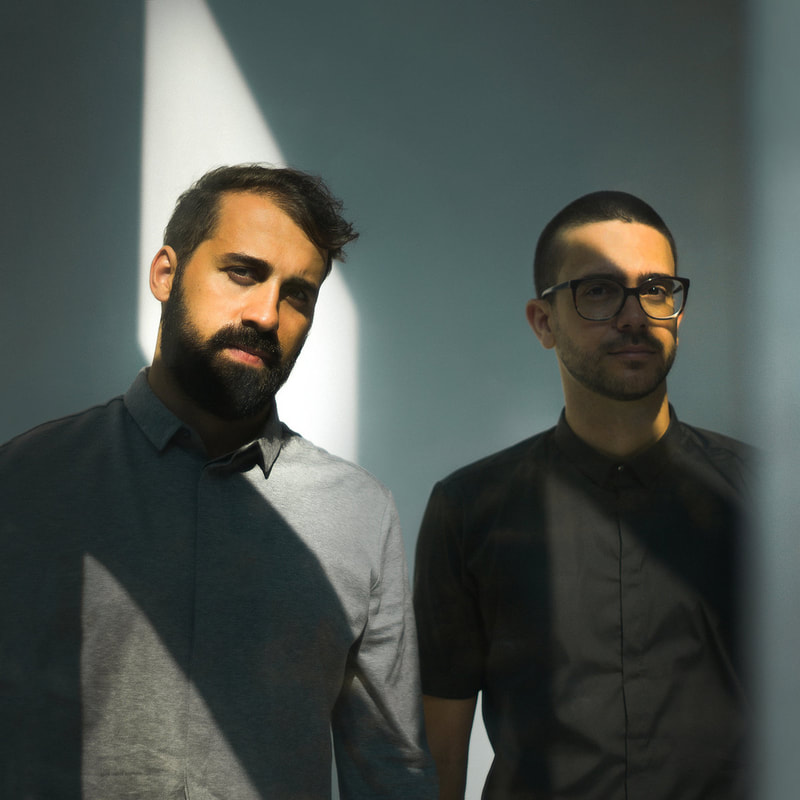GRANDBROTHERS |
There’s a celebrated John Cage quote that’s always appealed to Erol Sarp, one half of Düsseldorf’s Grandbrothers: “I can't understand why people are frightened of new ideas. I'm frightened of the old ones.” It’s a sentiment ideally suited to Sarp’s work with his musical partner, Lukas Vogel. The duo has consistently tried to find fresh ways, aesthetically and practically, to compose, and their ambitious second album, Open, explores dimensions at which their debut, Dilation, only hinted. Nonetheless, while Open draws upon a catholic range of influences, its performance dependent upon, among other things, elaborate, imaginatively fashioned contraptions whose mechanical hammers multiply the possibilities of their performances, the greatest revelation for anyone hearing them the first time remains the element constant to everything they’ve recorded: every individual sound that Grandbrothers make stems from one single instrument, a piano. No wonder their music was once memorably described as “open heart surgery on a grand.”
Nonetheless, listening to ‘1202', with which Open begins, this is surprisingly hard to recognise. There’s a single, repeated pulse, a mysterious, rhythmic tapping, until, eventually – while strange, unidentifiable notes echo in the background – what sounds like a harpsichord teases out a melody. Only halfway in does the recognisable sound of a piano emerge. As with everything on Open, however, such ingredients combine to forge instantly accessible, elegantly sophisticated, instrumental compositions, never more so than on ‘Bloodflow’, with its grippingly grand piano lines and hypnotic beat. Then there’s the ominous beauty of ‘From A Distance’, the lavish, blurred magic of ‚Long Forgotten Future’, and the shimmering romance of ‘London Bridges’. ‘Honey’, meanwhile, reflects the ups and downs of a relationship, the sweetness of its melody weathering dark storms to triumph at the end. There’s also the fairy-tale naivety of ‘Alice’, the sumptuous ‘White Nights’, which builds from fragile origins to something far more ornate and dramatic, and the memorable, thrusting ‘Sonic Riots’. ‘Circonflexe’, furthermore, could be mistaken for an exclusively electronic piece, an error often made until the duo’s working methods are revealed. Like Dilation before it, Open twins Sarp’s piano skills with Vogel’s talent for both building the formidably intricate mechanics with which he exploits his partner’s instrument and also designing its software. Sarp works at his ivory keyboard while, from behind his own computer keys, Vogel live-samples his partner’s notes, triggering further effects with the aid of homemade apparatus that physically manipulate the piano’s strings and body. “There are hammers I control,” he explains, “which hit different parts to make beats and percussive patterns. In the beginning, I just used an open circuit board I’d constructed without a proper case. It was very fragile and often didn't work. We always had a soldering-iron when we played live.” Suggestions that Grandbrothers are part of the burgeoning, so-called ‘neo-classical’ movement might seem reasonable, but, the duo argue, they’re also off the mark. As Sarp points out, “Just because we use the same instrument doesn’t mean that it’s the same music. Sometimes our songs have a pop structure and sometimes we write more electronic pieces, and we always think about what physical impact the songs can have on the audience, for instance whether they can dance to them. We don’t only make music for listening to, after all. As much as we enjoy playing concert halls with the audience seated we also love to play at sweaty clubs where people are standing and dancing around us.” Open’s horizons, therefore, are far wider than one might expect, something reflected in the myriad influences that have coloured its creation: from Aphex Twin to A Tribe Called Quest, from Ravel to Reich to Ryuichi Sakamoto’s work with Alva Noto, from John Coltrane to Oscar Peterson. This broadmindedness, in fact, is one of the reasons behind the album’s title, but there are others, too. “We always start with an open piano,” says Sarp, “and see it as a blank canvas when writing our songs. We look what new sounds we can generate, and during the writing of the album images of ‘wideness’ often came to mind. We wanted this emotion to be reflected within the title, while staying abstract, so every listener can have their very own interpretation and feelings about our music.” Open represents a significant leap forward for the duo, both musically and technically. “The songs have progressed a lot,” Sarp argues. “There's more roughness and force behind them. Whereas the songs on Dilation are simpler, and maybe even a little playful, these new ones are more intense.” Part of this is down to Vogel’s constant fine-tuning, and restless reinvention, of the systems he builds. “The main mechanical element remains the same,” he elaborates, “but now I use more powerful effects, like distortion and bit-crushing, which play a more important role so everything’s become denser. The most interesting change is that we’ve built elements we call bows, which oscillate the strings, without touching them, with an electromagnetic field. The sound is very clear, almost like flutes or an organ. It’s the same principle as an E-Bow, but it has to be far more powerful because the piano strings are much thicker and stiffer.” For Sarp, such innovation is now par for the course: “Lukas is always coming up with new stuff he’s developed,” he smiles. “As soon as our setup is stable, he seems to get bored and needs to have a new challenge to keep things exciting...!” Sarp and Vogel first met 7 years ago. They’d come to music at an early age: Sarp, raised in Wuppertal, western Germany, received his first piano lessons at the age of six. “I took them until I was 13, then quit, because I didn't like the concept of having notes put in front of me that I had to repeat and learn. I was always interested in adding my own stuff, but my teacher wasn't into that.” Vogel, meanwhile, remembers his father playing classical piano after he went to bed in the village outside Zurich where he and his sister grew up. By the age of 11, he’d joined the city’s renowned boys choir, but after his voice broke his interests diversified: while his piano teacher introduced him to the work of Steve Reich, he played keyboards in a rock band. Sarp meanwhile, drifted towards “all things metal”, learning to play guitar, bass and drums. “Metallica were my heroes,” he laughs, “and I still think that phase led to what I'm doing musically now.” Grandbrothers found common ground in Düsseldorf, where it took only a short while to begin working together. By this time, Vogel was building his own synthesisers – something which would eventually lead to a job at Access | Kemper – and Sarp suggested they combine his grand piano with electronic music. A key factor, Vogel emphasises, was that “we decided to not use synthetic sounds.” “My job,” Sarp adds, “was to keep it ‘listenable’ and ‘accessible’. We always try new things, work with effects we haven't used, try to find spots in the piano we haven't hit before.” If the resulting utensils look convoluted now, however, they could have been more extravagant still. “We even attached the hammers to long ropes,” Vogel remembers, “and let them swing over the piano, hitting lots of different parts like a pendulum.” Their first concert took place after only six months, in June 2012, and was greeted with such excitement that they knew they had to pursue the concept further. By March, 2015, they’d released Dilation, and, with live shows fuelling the growing interest in the duo, as well as significant critical acclaim – Germany’s Frankfurter Allgemeine Zeitung declared it “a colossal debut” – Gilles Peterson began to champion them after stumbling on its standout track, ‘Ezra Was Right’. Within twelve months, driven by word of mouth – which helped deliver remixes from the likes of Falty DL and Optimo’s JD Twitch – they were headlining Berlin’s illustrious Volksbühne Theatre. A year later, with their “go-to guy”, Julian Klapp, they entered Van Heys Studios, a converted farmhouse in the middle of the countryside outside the German city of Kleve, where they recorded Open in seven days. “What makes things work,” Vogel concludes, “is that we are such different personalities, with different skills, which fit together so well.” Sarp concurs: “Our music comes from a mixture of really intense analysis and simply doing things. I can calm him down, and he can incite me. He’s not just a colleague, but one of my closest friends.” Such synergy – born of an innate understanding and intuition, personally and musically – can be heard throughout Grandbrothers’ technically innovative, thrillingly distinctive work: two ingenious minds, perfectly in tune, relentlessly exploring new ideas. There’s nothing to be afraid of. Keep your mind Open. |
|
|
© COPYRIGHT 2023 First Artists Management. All audio is presented for promotional purposes only. All Rights Reserved.




